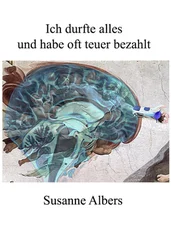Claire Kilroy - All Names Have Been Changed
Здесь есть возможность читать онлайн «Claire Kilroy - All Names Have Been Changed» весь текст электронной книги совершенно бесплатно (целиком полную версию без сокращений). В некоторых случаях можно слушать аудио, скачать через торрент в формате fb2 и присутствует краткое содержание. Год выпуска: 2010, Издательство: Faber & Faber, Жанр: Современная проза, на английском языке. Описание произведения, (предисловие) а так же отзывы посетителей доступны на портале библиотеки ЛибКат.
- Название:All Names Have Been Changed
- Автор:
- Издательство:Faber & Faber
- Жанр:
- Год:2010
- ISBN:нет данных
- Рейтинг книги:5 / 5. Голосов: 1
-
Избранное:Добавить в избранное
- Отзывы:
-
Ваша оценка:
- 100
- 1
- 2
- 3
- 4
- 5
All Names Have Been Changed: краткое содержание, описание и аннотация
Предлагаем к чтению аннотацию, описание, краткое содержание или предисловие (зависит от того, что написал сам автор книги «All Names Have Been Changed»). Если вы не нашли необходимую информацию о книге — напишите в комментариях, мы постараемся отыскать её.
All Names Have Been Changed — читать онлайн бесплатно полную книгу (весь текст) целиком
Ниже представлен текст книги, разбитый по страницам. Система сохранения места последней прочитанной страницы, позволяет с удобством читать онлайн бесплатно книгу «All Names Have Been Changed», без необходимости каждый раз заново искать на чём Вы остановились. Поставьте закладку, и сможете в любой момент перейти на страницу, на которой закончили чтение.
Интервал:
Закладка:
‘That’s funny,’ I said to him, ‘my eyes were shut in my communion photo too.’ I don’t know why I said this. It wasn’t true.
‘I made a hundred and eighty quid that day,’ he said. ‘How’d ya get on yerself?’
‘I don’t know. Twenty, I think.’ More like half.
This pleased him. ‘Retard.’
A plastic bottle in the shape of the Blessed Virgin stood on the windowsill. Her crown screwed off like a toothpaste cap. She was half full of holy water that had gone fibrous with age. On the floor was a tin of beans, one of sweet corn, and a box of Coco Pops — food that came in pellets and didn’t need to be cooked — all lying empty on their sides. Under the table was a Scalextric set. One link missing.
Giz swiped a section of the sofa clear of crisp packets and bedclothes and indicated that I should sit. I didn’t disobey. He pulled up an armchair and set about rolling a joint. This procedure demanded his full concentration and most of mine. We did not speak for the duration. A religious ritual might have been under way. His nails were bitten so close to the quick that his fingertips ballooned over them, tiny bald scalps. Homemade black dots tattooed his knuckles, the workmanship poor. He took a lump of gum out of his mouth and placed it on the table where it sat like his brain; small, grey and chewed.
There was a whirring sound in the corner followed by a mechanical clunk. We were plunged into darkness. The electricity meter had run out. ‘Fuck!’ Giz shouted, ‘fuck!’ He kicked the coffee table and something hit the floor. The bars of the plug-in heater glowed like a Sacred Heart. I scooped a palmful of coins out of my pocket and picked out the five-pence pieces as best I could see them in the residual light.
‘Here,’ I said, holding them up, stacked like gambling chips, but he was already out of the armchair, knocking things over in his wake. ‘I’ve more upstairs,’ I added for no good reason. There was no disguising the fear in my voice.
Giz crossed the room in silhouette and grabbed something from the shelf. It glinted orange in the dying light of the heater. He climbed onto a chair and got to work on the electricity meter, ratcheting away at it as if jacking up a car. The glow from the heating elements was fading rapidly, as was the outline of Giz. He expanded towards me in the darkness, loomed inches from my face.
The lights flickered on again. Giz shrank back to his regular dimensions, angry and compact. He cast the butter knife aside and jumped down from the chair, sighing like a man knocking off the night shift. I began to laugh, with relief I believe. I had seen strange forms in the dark.
The two-bar heater began to hum convivially once more, resuming its interrupted conversation. Giz picked up the ball of chewing gum and put his brain back in. ‘Where was I?’ he asked, standing hands on hips over the conjoined Rizla papers. He sat down and bent to his work again, childlike in his absorption. I watched him at his labours.
Somewhere along the line I stopped fretting about how to get out of there and settled into the couch as the joint passed between us. The buzz and fizzle of the two-bar heater was the very sound of cosiness. I pointed at the section of ceiling that supported my bed. ‘There’s my bed,’ I told him, as if introducing Giz to a member of my family. ‘And that’s my desk.’ I indicated the space by the far window.
Giz screwed his eyes up against the smoke. ‘I know.’ Of course he knew. He’d broken in once. Nothing to steal, but buckled the door, scribbled his name on the wall. ‘Here, d’ya wanna buy a Sony Walkman?’
‘You’re alright, thanks.’
He nodded as if he couldn’t blame me.
‘Tell us,’ he said later, ‘how’s your book?’
He made it rhyme with puke. He’d sunk so deeply into the armchair by then that his knees — cobalt blue and shiny in the silky tracksuit — were higher than his chin. A muscle in the hollow of his jaw flexed.
‘Me buke,’ I repeated, testing the pronunciation, trying it out for myself. When had I told him about me buke? He was holding the flame of a match to the tip of his cigarette but couldn’t get it to ignite.
‘Giz.’
‘Wha?’
‘Wrong end.’
He took the cigarette out of his mouth and saw that he’d been trying to light the filter. He held it up for my inspection. ‘Wrong end,’ he told me, then we laughed for, I don’t know, an hour. His shaved cuttlebone skull. It was a head-butting head.
When the doorbell rang downstairs, an hour or so again after that, Giz went to the window and raised a corner of the blanket to look out. He cursed when he saw who it was and pulled on his leather jacket. ‘I’m expectin a client,’ he told me, and I nodded to indicate that was fine by me and shoved up on the couch. It took a few moments to cop that Giz was throwing me out. ‘Aw, slick,’ I said, like he’d outfoxed me fair and square in some game of wits we’d been playing. I hauled myself to my feet. It was cold out there on the sagging corridor. For some reason, we shook hands before parting.
15 How can I protect you from this crazy world?
A full forty-eight hours elapsed before the north wind finally dropped. The flag mounted over Front Arch collapsed, flayed and crucified upon its pole. The sun shone fiercely throughout the day. I do not remember it faltering for so much as one second. The flash floods had receded, leaving tidemarks of detritus behind. We had gathered upstairs in House Eight in advance of the first workshop of the year.
Something looked different after the storm, we agreed, but not even Faye’s keen eye could identify precisely what. The terrain seemed smoother, the edges had gone off things. ‘That tree is new!’ Aisling exclaimed, pointing to the great oak behind the Campanile. It was like returning to a childhood room after an absence of years and finding it altered in scale, though you know it to be the same. The room hasn’t changed; you have. Our surroundings hadn’t changed; we had. The storm had changed us. We had weathered it together. We had come out the other side.
Glynn, too, we found altered. His funny walk was immediately apparent that first class after Christmas, even from a distance. When I say funny, I mean the opposite of funny. There was nothing remotely funny about it. Faye had been sitting by the radiator under the window when she abruptly stood up and put her hand to her mouth. The novel she had been reading slipped from her lap, landing with a slap on the floor. We crowded at the window to see what had upset her. Faye did not have to tell us. You couldn’t miss him. There he was on the far side of Front Square, reeling in our direction.
Antonia folded her arms after we had watched this spectacle for thirty seconds or so. ‘How long has that been going on?’ she demanded. She sounded cross with Glynn, as if he was deliberately putting it on to annoy her, testing her patience and pushing his luck. The world was one big trial designed to antagonise her. To this end, no stone had been left unturned.
Nobody answered Antonia’s question. Nobody had an answer. It was the first any of us had seen of him that year.
We observed his erratic progress from our bird’s-nest vantage, five wan faces behind a pane of glass, five hearts in five mouths. A sentence had formulated in my mind of its own accord, and, once it lodged there, it would not be dislodged. The phrase wasn’t one I had consciously composed but seemed rather to arise as a natural accompaniment to Glynn’s spasmodic procession, each syllable attuned to the jerky movement which had inspired it: Something is now broken that cannot be fixed, something is now broken that cannot be fixed. Uncanny, how precisely it fitted the rhythm of Glynn’s gait, as if it were the beat he was dancing to.
Читать дальшеИнтервал:
Закладка:
Похожие книги на «All Names Have Been Changed»
Представляем Вашему вниманию похожие книги на «All Names Have Been Changed» списком для выбора. Мы отобрали схожую по названию и смыслу литературу в надежде предоставить читателям больше вариантов отыскать новые, интересные, ещё непрочитанные произведения.
Обсуждение, отзывы о книге «All Names Have Been Changed» и просто собственные мнения читателей. Оставьте ваши комментарии, напишите, что Вы думаете о произведении, его смысле или главных героях. Укажите что конкретно понравилось, а что нет, и почему Вы так считаете.












